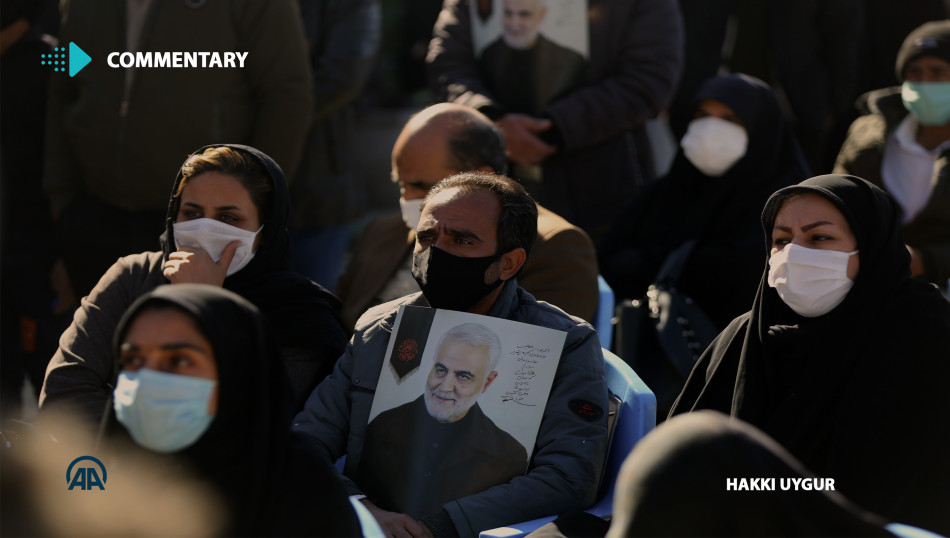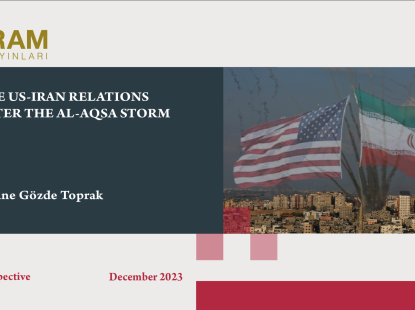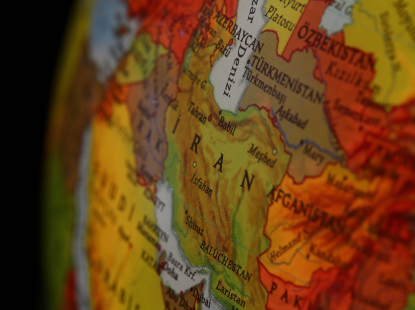The Anniversary of the Assassination of Soleimani
Recently, the Minister of Foreign Affairs Cevad Zarif's claim that Israel was conspiring to start a US-Iran war has brought the people's attention to the tension between the US and Iran in Iraq. In turn, some comments regarding the situation from the Turkish and world media have stood out. The fact that the rising tensions have coincided with the anniversary of the death of the renowned Iranian commander Qasem Soleimani and his companions has strengthened the claim that conflict is likely.
After Donald Trump's varying sanctions in May 2018, Tehran tried to respond the way it knows best: military operations. But, with the unsuccessful operations against the opposition's weak links in the UAE and Saudi Arabia, the administration turned to attacking the American presence in Iraq with proxy militia. After these attacks resulting in the death of one American, the US responded by carrying out an air strike on the Iranian militia in Iraq, followed by the drone attack on the night of January 3, which resulted in the assassination of twelve names, including Qasem Soleimani the deputy commander of the Popular Mobilization Forces Abu Mahdi al-Muhandis.
The attack carried out by the US was, in many ways, a first. Though the two countries had faced each other before, the previous clashes had been limited to attacks on the US through proxy powers like Lebanon or Iraq and to the air and naval forces' clashes in the Persian Gulf. Trump, by giving the order to kill practically the highest ranked Iranian military officer, had taken the tensions to another level. Iran's response was informing the US liaison office at the Swiss Embassy in Tehran on which bases it was planning on attacking. Indeed, the attacks were carried out and the American units suffered no casualties by taking shelter after the information on the attacks. While underlining the fact that Iran had attacked empty bases, there has been no emphasis on the intermediary means used by the US. After the assassination, attacks on the US bases located in Iraq greatly decreased and Iran's regional military activities came to a halt. Israel's air strikes in Syria and Iraq increased, while the sabotages and assassinations inside Iran also increased in both quality and quantity. The attack in Natanz and the assassination of Fakhrizadeh in November showed that Iran was starting to become more vulnerable and could not be protected from being targeted by hostile states within the country. This condition also invalidated Tehran's "not fighting in country X would result in being targeted within Iran" policy.
The dullness of Soleimani's death anniversary ceremonies in the country and the prominence of the demonstrations in Iraq, on the other hand, were concerned with lowering the expectations among the people in Iran. The administration, which claimed that "a harsh revenge" would be taken by equipping Tehran with thousands of posters and pictures immediately after the attack, had difficulty in taking a practical step other than making a criminal complaint to INTERPOL or making animated films. More interestingly, when it was learned that some pro-Iranian terrorist groups in Iraq were preparing for a military action on the anniversary of Soleimani's death, Ismail Kaani first went to the country and stated that the attack on US bases was "haram" to these groups, followed by Baghdad Ambassador Irec Masjid stating that they do not support such military actions. He emphasized that revenge does not necessarily have to be taken by military means.
As a result, a year later, Iran has learned the hard way that it does not have the military deterrence it and Soleimani had claimed to have against the US. What this means is that the US administration has now realized that if the right amount of force is used, Iran has no choice but to remain neutral or risk a total war. This is one of the reasons why the next two weeks will consist of waiting tensely.
This article is first published in 06.01.2021 at TRT Farsi.
- Tags:
- Soleimani
- al-Muhandis
- Iran
- US











